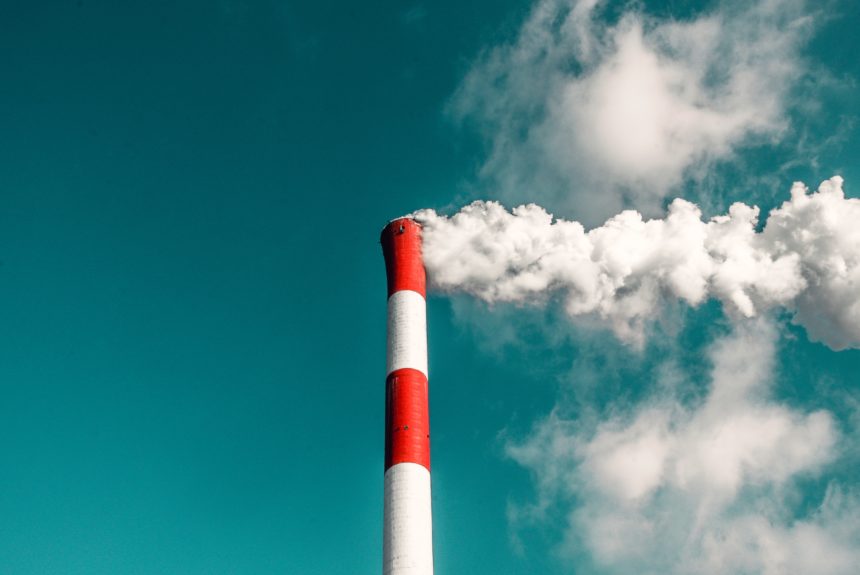A common concern of unilateral climate policy is that climate change is a global issue. Thus, taxes and regulations that raise energy bills on American families and businesses will have negligible climate impacts and could even increase emissions by sending U.S. companies overseas where environmental protections are weaker. To ostensibly level the playing field, Democrat policymakers have introduced a carbon tariff on emissions-intensive productions imported from countries that do not have strong climate policies. Some Senate Democrats hope to include the tariff in the $3.5 trillion budget reconciliation bill.
John Kerry, President Biden’s envoy on climate, called carbon tariffs a “last resort”, remarking that these tariffs “have serious implications for economies, and for relationships, and trade.”
He’s right. Tariffs are effectively a sales tax on imports. As evidenced by the Trump administration’s use of tariffs as a cudgel to protect American jobs, they imposed significant economic harm, failed to achieve their primary objectives, distorted markets and caused political dysfunction. We’ve seen this play out with steel, aluminum, washing machines and solar panels. Similarly, there is good reason to believe that carbon tariffs would increase costs for American consumers while failing to achieve meaningful climate benefits.
As policymakers consider a tariff, there are a number of factors to consider in addition to the high costs it could inflict on consumers. They include:
- Expanded Bureaucracy. One challenge of imposing a carbon tariff is the ability to calculate the emissions, determine the appropriate tariff rate and monitor the behavior of all the companies that it takes to make a single product. Supply chains are increasingly complex. A leaked version of the European Union’s proposed carbon tariff details just how costly it could be for firms to comply but also for bureaucracies to monitor and enforce. The Wall Street Journal Editorial Board noted that “foreign firms would have to undertake detailed carbon audits to report emissions to EU regulators, and then would have to work out what proportion of the emissions attributable to goods shipped to the EU already were covered by carbon taxes elsewhere. If a company isn’t able to complete such complex and expensive calculations, its carbon tariff will be estimated on the basis of the emissions of the dirtiest 10% of European producers for the same good.” Introduction of a carbon tariff would expand the size and scope of the federal government not only through the necessary increased bureaucracy to navigate its complexity but also because it would be another revenue source.
- Retaliatory actions that further increase costs. A common response to a government imposing tariffs is retaliation. When one government imposes costs on its consumers in an attempt to protect businesses within its borders, other governments respond in-kind. The end result is more protectionism and even higher costs for consumers. With discussion of a carbon tariff, there has been scant talk of removing other tariffs and non-tariff trade barriers. Moreover, the tariffs may increase costs without incentivizing any meaningful change in behavior and consequently not reducing emissions all that much.
- In potential violation of World Trade Organization (WTO) rules. Whether it’s the U.S. or European Union version, a carbon tariff would likely be in violation of WTO rules. Joseph Morton and Paul M. Krawzak recently wrote in Roll Call that carbon “fees can run afoul of international trade rules, particularly if they aren’t paired with domestic carbon taxes. That could bring penalties from the World Trade Organization.” Similarly, Emily Lydgate, legal expert with the UK Trade Policy Observatory, argued that it would be difficult to prove a carbon tariff is nondiscriminatory and the fact that EU companies are not relocating to countries without climate policies (and thus no leakage) potentially weakens the EU case for a carbon tariff.
- Special carve-outs for the politically connected. When Members of Congress introduced cap-and-trade bills, lobbyists worked diligently to shield their clients from the costs through the issuing of allowances. In effect, allowances permitted the politically connected companies to emit freely for a certain period. While few details have emerged as to how a U.S. carbon tariff would work in practice and what industries would be affected, it is likely that businesses, lobbyists and politicians will fight for exemptions and protection from the protectionism.
- What counts as climate policy? As indicated by several legal experts, levying a carbon tariff without a domestic carbon tax would likely violate WTO’s non-discriminatory rules. But the reality is climate change policy in the U.S. and around the world comes in many shapes and sizes. The U.S. federal government regulates carbon dioxide and methane emissions from certain sources and subsidizes emissions-free technologies. China launched its carbon trading scheme, but who knows how well it will work or be enforced. If a carbon tariff is supposed to level the playing field for companies operating in countries without climate policies, how should it account for the vast number of climate policies that exist around the world?
As noted in our Free Economies are Clean Economies report, free trade is a force for economic and environmental good, including CO2 reductions. Tom Burke, chairman of the environmental think tank E3G emphasized, “I think there is absolutely no benefit in taking the complicated politics of climate change and entangle them with the morass of politics that goes around trade.”
Policymakers and businesses should approach climate mitigation as an economic opportunity, not a burden. Simone Tagliapietra at the Brussels-based think tank Bruegel said, “If Europe decarbonizes quickly while others don’t do the same thing, European industry becomes competitively disadvantaged.” Rather than inflict economically harmful taxes and regulations, policymakers should work make decarbonization a competitive advantage, not a handicap. Innovative companies can deliver affordable, reliable energy and reduce emissions. Free trade and open competitive markets, rather than protectionism, can get us there faster.
The views and opinions expressed are those of the author’s and do not necessarily reflect the official policy or position of C3.
